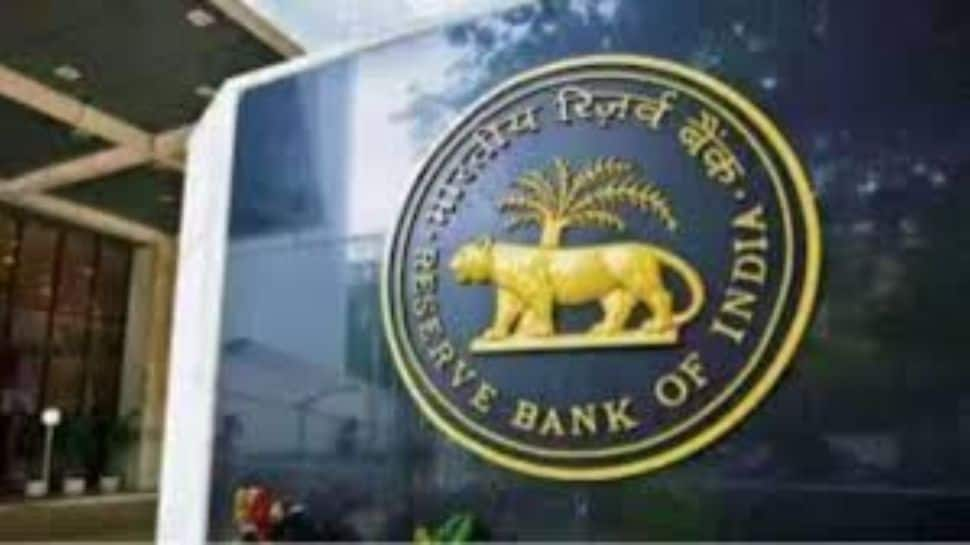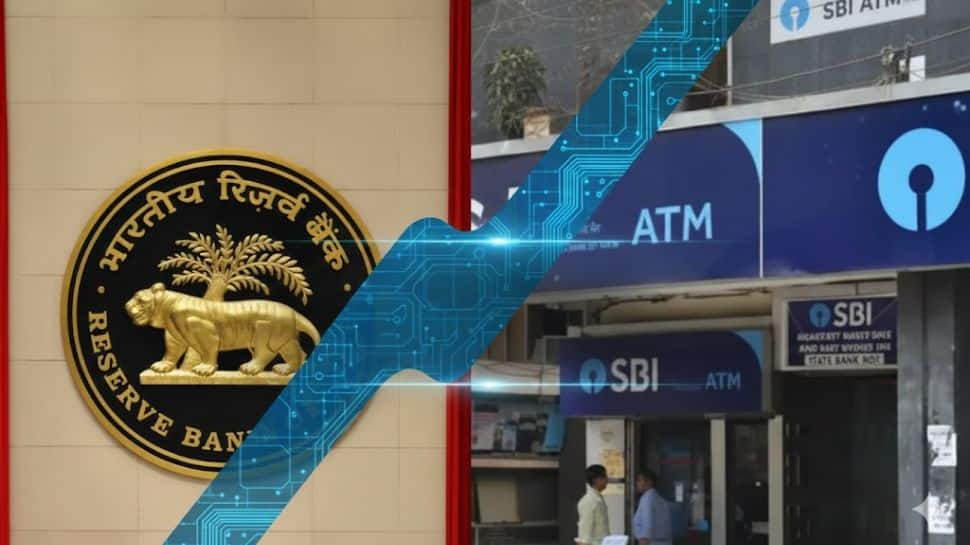Business
RBI-Backed Credit Of Rs 8 Trillion Strengthens MSMEs; FICCI-CMSME Prez

New Delhi: Around Rs 8 trillion in credit has been disbursed to India’s micro, small and medium enterprises (MSMEs) over the past three years, backed by the RBI and government policies, helping them access finance, expand business, and participate more effectively in public procurement, Girish Luthra, President, FICCI-CMSME.
“RBI, together with the Government of India, has been working very closely to make finance easier for MSMEs. One of the major challenges was related to guarantees or collateral requirements. The government addressed this by creating a threshold, initially one crore, and now up to ten crores, where MSMEs can access funds without collateral,” Luthra told ANI exclusively on the sidelines of 11th FICCI-CMSME Summit in New Delhi.
He said that this initiative, combined with digital tools like the Government e-Marketplace (GeM), has already created a substantial impact.
“GeM and its focus on sustainability are making a real difference for MSMEs. With six million plus enterprises forming the backbone of this sector, FICCI-CMSME is the only large confederation focusing exclusively on their growth, and government support is helping us do a great job,” he said.
Highlighting participation in public procurement, Luthra added, “Today, almost 45 percent of public procurement is done through MSMEs, and we truly appreciate the government’s efforts in this regard.”
Addressing concerns about NPAs, he clarified, “It’s a common misunderstanding that MSMEs contribute heavily to NPAs. In reality, NPAs in the MSME sector are only 3.9 percent, which is far lower than that of large organisations. This low risk is why the RBI has supported collateral-free funding for MSMEs.”
On ease of doing business, he said, “Interstate competition is improving outcomes because each state wants to perform better than the other. Implementation happens at the state level, and this competition is proving very effective.”
Discussing domestic challenges, he added, “Labour reforms over the past two years have reduced production losses due to workforce issues significantly. Similarly, state governments are relaxing land laws, and cluster-based industrial approaches now allow MSMEs to set up plug-and-play operations with all titles cleared — this is the most effective model.”
Stressing the importance of outreach he said “The government has excellent MSME policies, but many enterprises are unaware of them.”
FICCI-CMSME is working with the Ministry of MSME and NSIC to organise 100-200 outreach programs across the country.
Business
India EV Market Hits 2.3 Million Sales In 2025, Policy Support, Festive Demand Drive Adoption

India EV Market: India’s electric vehicle (EV) market crossed a major milestone in 2025, with total EV sales reaching 2.3 million units, accounting for 8 per cent of all new vehicle registrations, according to the Annual Report: India EV Market 2025 prepared by the India Energy Storage Alliance (IESA) based on Vahan Portal data. The report, released this week, highlighted that EV adoption accelerated steadily through the year, supported by policy incentives and a sharp festive-led surge in the final quarter.
India’s broader automobile market recorded 28.2 million vehicle registrations in 2025, with two-wheelers remaining dominant, accounting for over 20 million units, or 72 per cent of total sales. Passenger four-wheelers crossed 4.4 million units, while tractors and agricultural vehicles exceeded 1.06 million units, reflecting broadly stable demand across segments. The report noted that overall vehicle sales growth remained steady during Q1 to Q3, followed by a festive-led acceleration in Q4, aided by GST benefits and year-end consumer demand.
Electric two-wheelers continued to anchor EV adoption, with 1.28 million units sold, representing 57 per cent of total EV sales. Electric three-wheelers (L3 and L5 combined) followed with 0.8 million units, or a 35 per cent share, while electric four-wheelers recorded sales of 1.75 lakh units. In the electric four-wheeler segment, the report noted strong momentum in electric goods carriers, particularly in small and light commercial vehicle segments, indicating early progress in the electrification of logistics applications.
Among states, Uttar Pradesh emerged as India’s largest EV market in 2025, with more than 4 lakh EV units sold, accounting for 18 per cent of total EV sales. Maharashtra accounted for 2.66 lakh units, or 12 per cent, while Karnataka recorded 2 lakh units, or 9 per cent. Together, these three states accounted for over 40 per cent of national EV volumes.
Despite lower absolute vehicle sales, states such as Delhi, at 14 per cent, Kerala, at 12 per cent, and Goa, at 11 per cent, recorded higher EV-to-ICE ratios. The report also noted that Tripura, at 18 per cent, and Assam, at 14 per cent, recorded robust EV-to-ICE ratios in 2025.
The IESA report stated that the government determined the electric three-wheeler segment had reached a sufficient level of market maturity and penetration, at around 32 per cent. A major policy development during the year was the conclusion of India’s largest-ever electric bus tender. Convergence Energy Services Limited (CESL) announced the successful completion of a 10,900 electric bus tender under the Rs 10,900 crore PM E-DRIVE scheme, aimed at accelerating green public transport.
The report indicated that while EV penetration remained strongest in light vehicle segments, the government’s focus on electrifying heavy commercial vehicles, supported by dedicated charging infrastructure development, continued to strengthen the long-term electrification roadmap, positioning India’s EV ecosystem for sustained growth beyond 2025.
Business
AI shopping: Google partners Walmart, Shopify and Wayfair to turn Gemini into in-chat checkout platform; what you need to know – The Times of India

Google has expanded the shopping capabilities of its Gemini AI chatbot by partnering with major retailers including Walmart, Shopify and Wayfair, enabling users to browse and buy products directly within the chatbot, the company said on Sunday, AP reported.The move, announced on the opening day of the National Retail Federation’s annual convention in New York, positions Gemini as both a virtual shopping assistant and a transaction platform, allowing customers to complete purchases without leaving the chat interface.According to Google and Walmart, an instant checkout feature will let users buy products from participating retailers through multiple payment providers directly inside Gemini. Customers who link their Walmart and Gemini accounts will receive personalised recommendations based on past purchases, and items bought through the chatbot can be added to their existing Walmart or Sam’s Club online carts.“The transition from traditional web or app search to agent-led commerce represents the next great evolution in retail,” Walmart’s incoming president and CEO John Furner said in a joint statement with Google and Alphabet CEO Sundar Pichai.Google said Gemini’s shopping feature can respond to product-related queries — such as recommendations for ski gear — by pulling items from participating retailers’ inventories and facilitating purchases within the same conversation.The announcement comes amid intensifying competition among tech giants to dominate AI-powered commerce. Google, OpenAI and Amazon are all racing to enable seamless shopping experiences that take users from product discovery to checkout within chatbots.OpenAI and Walmart unveiled a similar partnership in October, allowing ChatGPT users to purchase most items available on Walmart’s website through instant checkout, excluding fresh food. Ahead of the holiday shopping season, OpenAI also launched in-chat purchasing for select retailers and Etsy sellers.Salesforce estimates that artificial intelligence influenced $272 billion, or about 20 per cent, of global retail sales during the recent holiday season.Google said the AI-assisted shopping features in Gemini will initially be available only to users in the US, with international expansion planned in the coming months.
Business
Which Transactions Are Tracked by the Income Tax Department? Check Key Reasons Why You Haven’t Received Your ITR In 2026

Transactions Tracked By Income Tax Department: Imagine you buy a coffee, pay for your movie ticket, or transfer money to a friend. Most of these everyday transactions go unnoticed, yet some payments, investments, and bank movements quietly catch the attention of the Income Tax Department. Have you ever wondered why certain transactions are tracked while others are not? In this article, we will explore which financial activities the tax authorities monitor and which ones remain beyond their radar.
Transactions Tracked By Income Tax Department
According to Section 285BA of the Income Tax Act and Rule 114E of the Income-tax Rules, 1962, certain high-value transactions that exceed specified limits in a financial year must be reported to the Income Tax Department. This is done by filing a Statement of Specified Transactions using Form 61A. The purpose of this reporting is to maintain transparency in financial dealings and help detect any cases of tax evasion.
The Income Tax Department keeps an eye on certain high-value financial transactions. For instance, cash deposits exceeding Rs 10 lakh in savings or fixed deposit accounts are tracked, as are cash deposits or withdrawals over Rs 50 lakh in current accounts. Credit card payments above Rs 1 lakh in cash, or Rs 10 lakh through other modes, also attract attention.
Adding further, the property transactions worth Rs 30 lakh or more, whether purchases or sales, are monitored, along with investments in bonds, shares, or mutual funds exceeding Rs 10 lakh. These thresholds help the authorities track significant financial movements while routine transactions usually remain beyond their radar.
Transactions Not Tracked By Income Tax Department
The Press Information Bureau’s (PIB) fact-checking unit clarified a viral claim suggesting that the Income Tax Department monitors citizens’ emails, social media accounts, online shopping, digital payments, and personal apps. According to the official statement, the Income Tax Department does not track online shopping, digital payments, app-based transactions, or any form of personal spending behaviour. There is no mechanism to monitor an individual’s digital or online activity.
Income Tax Refund Delay In 2026: Key Reasons
If you filed your income tax return (ITR) for FY 2024–25 and are still waiting for your refund in 2026, you are not alone. Many taxpayers are feeling uneasy as refunds seem slower this year. For returns filed for FY 2024–25 (Assessment Year 2025–26), the department has time until December 31, 2026 to process them under Section 143(1) of the Income Tax Act. This means refunds can legally take several months, even after successful filing and verification.
Several factors can cause delays. Very high refund claims can trigger extra checks, while mistakes or mismatches in your information are another common reason. It’s important to ensure your bank details are correct and that your PAN is linked to your Aadhaar. On top of that, any unpaid taxes from previous years can block or reduce your refund. Paying attention to these details can help your refund reach you faster.
-

 Sports7 days ago
Sports7 days agoVAR review: Why was Wirtz onside in Premier League, offside in Europe?
-

 Entertainment4 days ago
Entertainment4 days agoDoes new US food pyramid put too much steak on your plate?
-

 Politics4 days ago
Politics4 days agoUK says provided assistance in US-led tanker seizure
-

 Entertainment4 days ago
Entertainment4 days agoWhy did Nick Reiner’s lawyer Alan Jackson withdraw from case?
-

 Entertainment7 days ago
Entertainment7 days agoMinnesota Governor Tim Walz to drop out of 2026 race, official confirmation expected soon
-

 Business7 days ago
Business7 days ago8th Pay Commission: From Policy Review, Cabinet Approval To Implementation –Key Stages Explained
-

 Sports7 days ago
Sports7 days agoSteelers escape Ravens’ late push, win AFC North title
-

 Politics7 days ago
Politics7 days agoChina’s birth-rate push sputters as couples stay child-free










